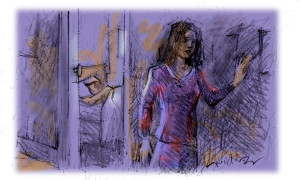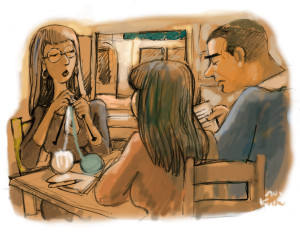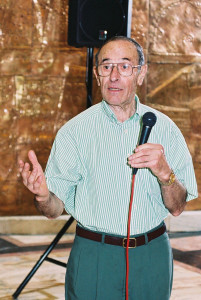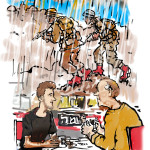Haim Watzman
“For what is the cat?” Savta Levana asked as Tamar smoothed the creases out of the apron she had just fastened at her grandmother’s back.
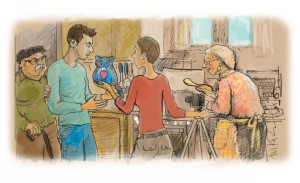 illustration by Avi Katz
illustration by Avi Katz
“Just something I made. Now stand over by the sink so I can check the light.” Tamar had positioned her video camera at the entrance to the tiny kitchen. The good part was that she could leave the camera largely unattended. Savta Levana wouldn’t move much because there was practically no counter space left for her to work on now that she had all the modern conveniences. A mini-dishwasher grabbed most of the corner on the left side of the sink, between it and the refrigerator, and a microwave oven took up the bulk of the small stretch of counter between the sink and the window on the right. Tamar had already given instructions not to move the chicken over to the small table opposite, on which the cat sat. Even though that’s where Savta Levana really did most of her prep for the stove and oven, the camera would not see her there.
“What is just something you made? You just made it like that? A busy girl like you? You have time to make cat dolls?”
“Savta, we’re making tbit,” Tamar reprimanded her.
“I’ve made tbit every Friday for more than fifty years and I never had someone watch me,” the grandmother complained, eyeing the big-headed blue cat with the heart in its paw with more than a pinch of suspicion.
“I’m going to make you famous. Savta Levana’s Iraqi recipes on YouTube. People all over the world will make your tbit. They’ll make pilgrimages to Holon to worship at your kitchen. I’ll even add English subtitles.”
